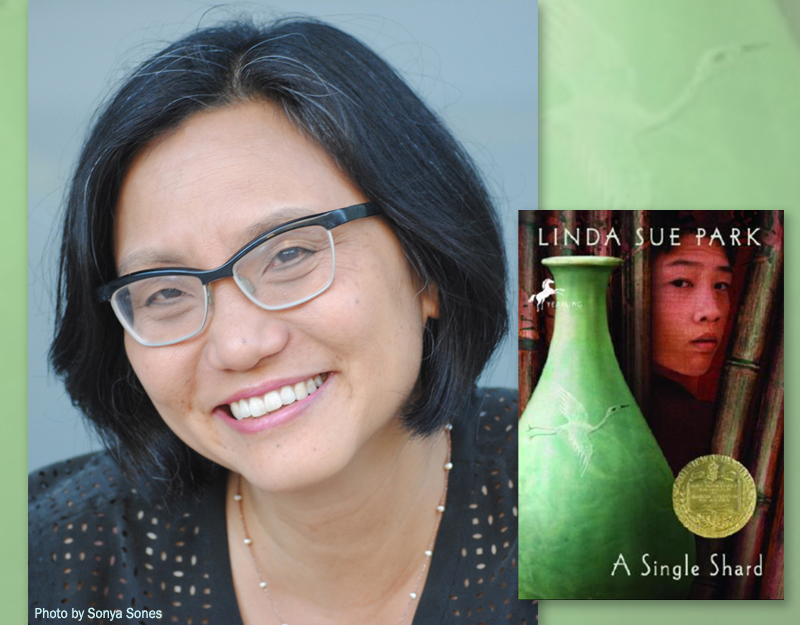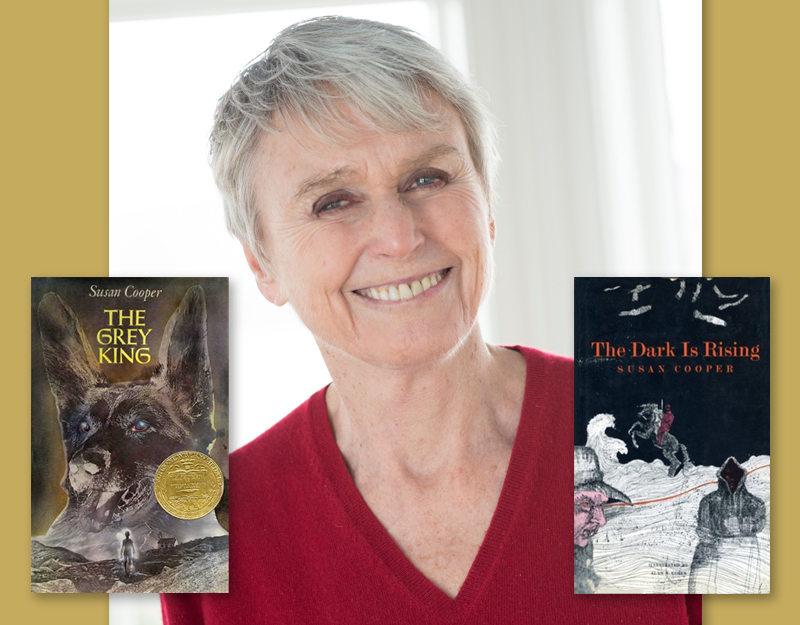Splendors and Glooms: Nina’s Take

Of any predictions I could hazard in Newbery season, my best bet would be to say that the discussion over this title will get contentious. This seems to be a “love it or hate it” title, and if you’re not loving it, it asks a lot of you. So take some time to get yourself in the mind of its perfect reader. You love a “fat” book, one which completely sucks you in, a literal door into another world that you can go to behind its covers. One that is peculiar, and frightening, but deliciously so, like a Grimm’s tale or a Sendak drawing, one where each character alternately annoys and enthralls you, like your best friend.
This is SPLENDORS AND GLOOMS of course, by Newbery-winning author Laura Amy Schlitz. It is surely “highly anticipated”. I find it daring: Schlitz has firmly chosen a pacing, voice, and structure to suit her story and characters. It unwinds slowly and circuitously, as if in homage to Dickens’ serial novels. It is not “shaped” like the kind of novel many of us expect to be written for children today. But its meandering tone allows her to set scenes so vivid you’d swear you’d been transformed into a puppet in her stage. Allows her characters to develop intricate quirks and nuances that serve the final development. Would Parsefall have been able to fill the role he does if we didn’t understand completely his individually crafted moral view of the world, and his reliance on the artistry of puppetry to feed his soul? Would Clara have been able to be a sympathetic heroine in her horrible visage if we didn’t come to an understanding along with her of the dysfunction of her family? And the story stays true to itself to the end; it is a happy ending for the protagonists, but not one of a post-Freudian 21st century children’s novel. Happy here means money, food, friends, and thus: joy.
ADVERTISEMENT
ADVERTISEMENT
No story is perfect. I am sure there are moments within this novel that were thinner than others. (Of all the characters, we are never allowed sympathy for Grisini. Even Clara’s father gets the tinniest bit, but not our evil mustache-twirler. Perhaps the story needed one solidly bad bad guy, but it’s the one thing that felt slightly off-kilter to me.) But by giving readers so much in the form she did, Schlitz allows herself and her readers room for all of it, and there is so much “real” here that anything else fades away. For the reader who appreciates the length and pacing of this story, it becomes an incredible buffet, a constantly evolving landscape of words and scenes and emotions and action to savor. It addresses every one of the Newbery Criteria with writing of a quality and individuality we’ve rarely seen, making it–to my mind–truly distinguished.
Filed under: Uncategorized
About Nina Lindsay
Nina Lindsay is the Children's Services Coordinator at the Oakland Public Library, CA. She chaired the 2008 Newbery Committee, and served on the 2004 and 1998 committees. You can reach her at ninalindsay@gmail.com
ADVERTISEMENT
ADVERTISEMENT
SLJ Blog Network
Name That LEGO Book Cover! (#53)
Cover Reveal and Q&A: The One and Only Googoosh with Azadeh Westergaard
Exclusive: Vol. 2 of The Weirn Books Is Coming in October | News
Fighting Public School Book Bans with the Civil Rights Act
Take Five: Middle Grade Anthologies and Short Story Collections
ADVERTISEMENT








Oh, Nina! I am so with you. This is the Mary Poppins book of the year – practically perfect in every way. I have no one favorite element, because it is all there.
EVERY WORD is perfect. Her use of language blew me away. Also, I never found the understanding out of the reach of her audience. When Cassandra says, “My mother went off and disgraced herself with another man.” I stood back in awe.
The characters are fully rounded. I even found Clara’s father so. We get to watch his struggle with not only his unceasingly distraught wife but with his own guilt for his secret preference of one of his children over another. Grisini is quite the juicy villain, horrid all the way through, with the kind-hearted Lizzie Rose the only person capable of giving him sympathy. My particular favorite had to be the landlady Mrs. Pinchbeck and her penchant for dramatic pictures.
The setting is palpable without the reader feeling bogged down by description. My favorite account is when Parsefall first sees the Scottish countryside and compares it to the scenery used on his puppet stages. Also, the image of Grisini trapped in the ice is one I can close my eyes on and relish repeatedly.
Going back to the discussion on emotion, I never felt manipulated by Schlitz. While all three children’s situations raised compassion they never seemed like victims. No passive protagonists here, each one became an agent of change.
Plot – everything, everything, everything that showed up on the page showed up later as a necessary element of the story. I kept waiting for how the blasted brass monkey was going to figure into the story and I was not disappointed.
Clearly, I’m still a bit intoxicated over my recent reading of this book, but I feel it will hold up over repeated scrutiny.
I am also one of the lovers of this book. The complete evilness of Grisini didn’t really bother me, because it felt in keeping with the Victorian style of the story. There were also a few details dropped here and there–like his imprisonment in France–that gave me a slightly more rounded sense of his character, so I understood his motivations and it never felt like he was tormenting the children just because he was evil. There was purpose behind it. The book’s greatest strength for me was in the description of the puppets. I am a professional puppeteer and I have carved and strung marionettes. Everything that Schlitz wrote about –the difficultly in not ‘floating’ the puppets, weighting them properly, getting it high enough to string–was absolutely true to life. There have been several books this year that I admire greatly, but this is the one that I love.
I loved this, loved the beauty and complexity of its structure, and the intricacy of its emotional arc.
It did seem almost YA to me, that is, 12 and up. On the other hand, At ten I would have devoured every word, and then read it again. So I am a little on the fence about the age level.
I agree that this is an excellent, challenging, well-plotted novel perfect for a Newbery. So far, I have had two of my 6th graders (11 years old) read it and like it a lot.
It didn’t take any effort at all to “get [my]self in the mind of its perfect reader” – I loved this one both as my kind of story and as an absolutely distinguished piece of writing.
I didn’t have any issues with Grisini as a complete villain – there were plenty of other characters that fit into a gray area, more than enough to make me happy (the witch, Mrs. Pinchbeck, Clara’s parents). The language, the setting, the historical details, the fantastical elements – it all fit together perfectly. It’s at the top of my list so far.
Grace Anne, as long as you can see if for “12 and up”, why would you be on the fence about age level…since the Newbery is for “children” through age 14?
(I myself can also see plenty of 10 yr old readers for this).
GraceAnne, can you talk about why you think this one is for 12 and up? Personally, I see it as a middle grade novel, pitched to an audience of 4th to 8th graders, but leaning more to the juvenile side. While I do think the vocabulary is challenging, and the pacing is leisurely, everything else seems to appeal to the younger end of that spectrum (i.e. 4th to 6th), which is not to say that older children will not gravitate to the book. I would love to hear anecdotal evidence of how children are responding.
I confess to being of two, and possibly three, minds about this. I know that Newbery is up to age 14, but this read really made me think Printz rather than Newbery at first. The structure and vocabulary had me thinking a lot about teen readers. But – yes, another but – I thought of the ten year old I was, and knowing how fullheartedly she would have loved this. It feels older, and yet.
I realize I am not approaching this coherently.
I’d agree with this as a somewhat dense middle-grade novel; I think the three children display a child’s understanding of the world and interest in their places within it, with Lizzie Rose appropriately starting to peek beyond that understanding. I thought Clara’s father was probably the one who gets the most sympathy from the reader! The most affecting moment for me (but there are so many) is when Parsefall is hoping to join the puppetry company. That’s one of the few moments when I thought the book shared something with the readers that crosses/connects between our world and the world in the book; otherwise the world there feels very self-contained. (I am, probably, not making a whole lot of sense.)
I didn’t connect with this enough to care much about whether it gets an award or not, but it is certainly worthy of one.
I neither loved nor hated this book. There is not much I can say to counter Nina’s argument of its excellent qualities. As a detached reader I recognize the masterful artistry of it. I think Grisini being all bad was part of the Victorianesque feel of the novel, as is what annoyed me most about the book-the utter goodness of Lizzie Rose. I understand why she had to be written that way for what the novel was trying to do, but that was why I couldn’t love it. Being a character reader I found myself frustrated by this, too much of it was told from her perspective and the whole time I was desperately wishing she would either get a personality or we could get more of the story from Parsefall (who I found fascinating). I realize this is a me-as-a-reader problem and not a flaw with the writing itself. It will be a challenge for me to get really excited about this one, but at the same time I agree with all of the arguments for it. This is a vexing position to be in.
I think Grisini is about as nuanced as he can be within the confines of a “Victorian” novel. The first thing we learn about him has to do with his petty capriciousness:
“Some days he came home with sausage rolls or meat pies and announced a feast, kissing his fingertips in praise of his own generosity. Other days, he crept off like a cat and slunk back satisfied, never bothering as to whether Parsefall or Lizzie Rose had anything to eat.” (page 14 of the ARC)
I feel like those two sentences tell us almost everything we need to know about Grisini, and I find that kind of small-minded, cowardly, self-aggrandizing banality totally believable. He also provides a foil for Parsefall, as someone who has no redeeming value aside from his artistic talent.